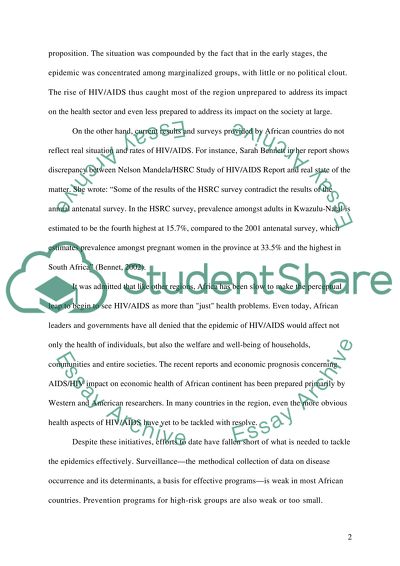Cite this document
(“Sexual Health: Africas response to HIV/AIDS has been widely criticised Essay”, n.d.)
Retrieved from https://studentshare.org/health-sciences-medicine/1502367-sexual-health-africas-response-to-hivaids-has-been-widely-criticised-by-the-west-what-are-some-central-themes-associated-with-these-criticisms
Retrieved from https://studentshare.org/health-sciences-medicine/1502367-sexual-health-africas-response-to-hivaids-has-been-widely-criticised-by-the-west-what-are-some-central-themes-associated-with-these-criticisms
(Sexual Health: Africas Response to HIV/AIDS Has Been Widely Criticised Essay)
https://studentshare.org/health-sciences-medicine/1502367-sexual-health-africas-response-to-hivaids-has-been-widely-criticised-by-the-west-what-are-some-central-themes-associated-with-these-criticisms.
https://studentshare.org/health-sciences-medicine/1502367-sexual-health-africas-response-to-hivaids-has-been-widely-criticised-by-the-west-what-are-some-central-themes-associated-with-these-criticisms.
“Sexual Health: Africas Response to HIV/AIDS Has Been Widely Criticised Essay”, n.d. https://studentshare.org/health-sciences-medicine/1502367-sexual-health-africas-response-to-hivaids-has-been-widely-criticised-by-the-west-what-are-some-central-themes-associated-with-these-criticisms.


